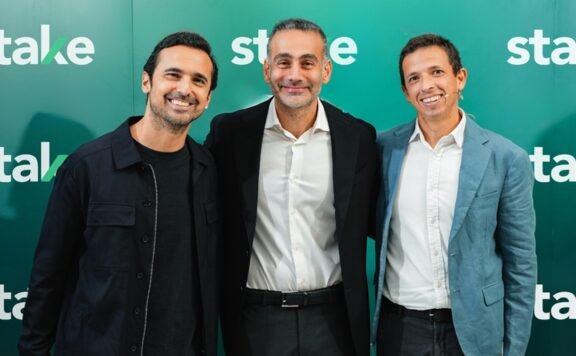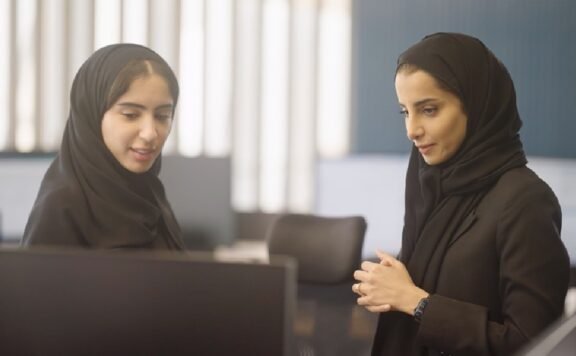Current practices and future trends and uses of mobile learning and transformative technologies were eagerly discussed as hundreds of educators attended the First Annual Global Mobile Learning Congress 2012 at the United Arab Emirates University in Al Ain today.
The Congress was inaugurated by H.E. Sheikh Nahayan Mabarak Al Nahayan, UAE Minister for Higher Education & Scientific Research, who has championed the important synergies between technology and education for the advancement of the UAE’s citizens and its economy.
His Excellency Sheikh Nahayan was joined by Congress keynote speaker John Couch, Vice President – Worldwide Education, Apple Inc., who has spent the last few days in the UAE witnessing first-hand the implementation of the country’s Federal Higher Education Mobile Learning Initiative which is utilizing Apple Inc’s 3rd generation iPads (iPad is a trademark of Apple Inc., registered in the U.S. and other countries) in Foundation Programs at the United Arab Emirates University , Higher Colleges of Technology and Zayed University .
H.E. Sheikh Nahayan said during his Opening Address that the collaboration with Apple Inc, the mobile learning launch and the Congress were part of a “bold initiative to improve teaching and learning by using mobile technology”.
“We have always sought to employ the most advanced technology that promised to improve the way we teach and the way our students learn,” Sheikh Nahayan said.
“We in the United Arab Emirates recognize the important potential of technological innovation in building national manpower capability, in promoting lifelong learning, and in helping the United Arab Emirates compete in the world economy. Our colleges and universities have a fundamental commitment to technology. We work to ensure that the technology is not only available but also educationally powerful,” he added.
“All three of our higher education institutions, the UAE University , Zayed University , and the Higher Colleges of Technology , are committed to being leaders in using technology to improve teaching and learning. I am personally committed to continuing our aggressive efforts to lead and sponsor technology initiatives that promote active learning and help our students become independent thinkers and lifelong learners.”
Sheikh Nahayan said that the mobile learning initiative focused on “important issues in technology, connectivity, and education”, adding that the emphasis on technology and education were vitally important to the UAE. “There is no more important national endeavor than the improvement of education. In the United Arab Emirates we have been most fortunate to have leaders of our country who understand and extol the value of education for developing our future generations,” he said.
“We are determined to have an education system that draws on the world’s best knowledge and resources and prepares all of our students for work in the digital and technological age. Education, technology, and a global perspective are key components of our success in the future.”
H.E. Sheikh Nahayan added that “good education is an essential building block of national and global progress”, stating further that “the true beneficiaries of our work together will be our students who will be better educated and who will better improve the well-being of their communities”.
While a strong focus of the Congress was on the wide possibilities for engagement of mobile technologies for enhanced student learning, including in remote developing towns and villages, H. E. Sheikh Nahayan emphasized that one of the most important considerations was the role of faculty members in developing the potential of the iPad for improving teaching and learning.
“We must remember that the best learning occurs when students participate actively in their own education. Our students, along with other people their age, have been called Digital Natives. Technology is a natural and integral part of their lives. Smart teachers will partner with their Digital Natives in identifying and experimenting with ways in which the iPad might nourish the growth of an educated person. Faculty members must create and foster those partnerships. Both students and teachers will benefit immensely from an open and creative spirit in the classroom and, in this matter of mobile technology, out of the classroom as well,” Sheikh Nahayan said.
The intensive one-day event was an integral component of the Federal Mobile Learning Initiative, which was officially launched on Sunday September 23 by His Highness Sheikh Mohammed Bin Rashid Al Maktoum, Vice President and Prime Minister of the UAE, and Ruler of Dubai. The Initiative will see about 14,000 new and Foundation Program students at the three Federal higher education institutions utilizing the tablet technology in what is known to be the largest nationwide mobilization of mobile learning in higher education anywhere in the world.
Congress delegates heard from, and interacted with, technology and education experts who discussed some of the latest advances in mobile, or ubiquitous, technologies being used in classrooms around the world. Congress speakers included Dr. Ruben Puentedura, the Founder and President of US-based consulting firm Hippasus, which focuses on transformative applications of information technologies to education; Professor Peter Scott, the Director of the Knowledge Media Institute at the UK’s Open University; and Dr. James Ashby, President and Chief of Psychometrics, CORE Edutech, USA, and who is a leading innovator in research-based education designs for elementary, secondary, and higher education.
The Congress started impressively with Apple Distinguished Educator David Baugh recounting the great success of the School in a Box initiative which allows remote schools, villages and towns in places such as Nepal to have access to mobile technologies such as the Apple iPad as a teaching and learning resource.
Federal Mobile Learning Initiative Chairman Dr. Tayeb Kamali said the Congress marked the start of an important an ongoing collaborative project from the three Federal higher education institutions to help boost students’ learning outcomes.
“This Congress and the Initiative are truly historic events and celebrations for the three institutions who have worked so closely together over the past months to make the vision of His Excellency Sheikh Nahayan, to implement mobile learning technologies in the classrooms, a reality,” Dr. Kamali said.
“We are all very pleased to welcome Mr. John Couch from Apple and our other esteemed guests and speakers to this exciting Congress which will see the development and growth of so many exciting innovations in mobile learning technologies for our classrooms and those around the world,” he added.
The Federal Mobile Learning Initiative came about after H.E. Sheikh Nahayan Mabarak Al Nahayan, in April 2012, set the three Federal higher education institutions a challenge to embark on a historic initiative to move education into the mobile learning era by introducing iPad-based teaching and learning for entering Foundation Program students in September. The objective was to leverage the power of these m-learning devices to transform the classroom by bringing the world into the classroom and extending the classroom into the world.
It is envisaged that mobile learning will change some traditional concepts of teaching and learning, firmly aligning them with cutting-edge 21st century learning processes. Students will find new ways of learning that recognize their aptitude for mobile technologies, thus making their higher education experiences more effective, rewarding, and hands-on.
M-learning will bring the world of knowledge and information to the students and break down the virtual walls of the classroom, allowing students to become the co-creators of their own learning environment through collaborations with their peers and faculty.




